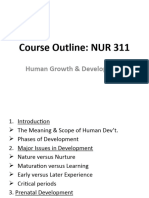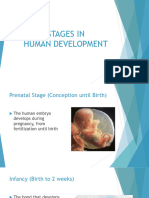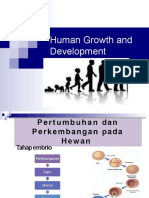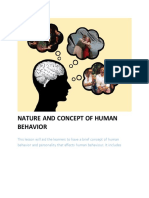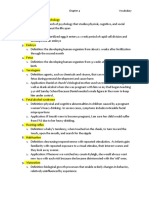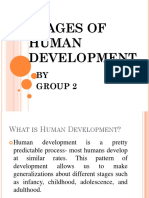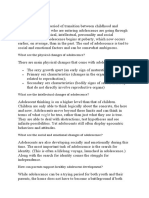0% found this document useful (0 votes)
10 views7 pagesCal M2
The document outlines the stages of human development, detailing key tasks and challenges from infancy through late adulthood. It emphasizes the importance of physical, cognitive, social, and emotional growth at each stage, highlighting how these factors shape identity and relationships. Understanding these stages provides insight into the transformations individuals experience throughout their lives.
Uploaded by
carolineatilano07Copyright
© © All Rights Reserved
We take content rights seriously. If you suspect this is your content, claim it here.
Available Formats
Download as PDF, TXT or read online on Scribd
0% found this document useful (0 votes)
10 views7 pagesCal M2
The document outlines the stages of human development, detailing key tasks and challenges from infancy through late adulthood. It emphasizes the importance of physical, cognitive, social, and emotional growth at each stage, highlighting how these factors shape identity and relationships. Understanding these stages provides insight into the transformations individuals experience throughout their lives.
Uploaded by
carolineatilano07Copyright
© © All Rights Reserved
We take content rights seriously. If you suspect this is your content, claim it here.
Available Formats
Download as PDF, TXT or read online on Scribd
/ 7

